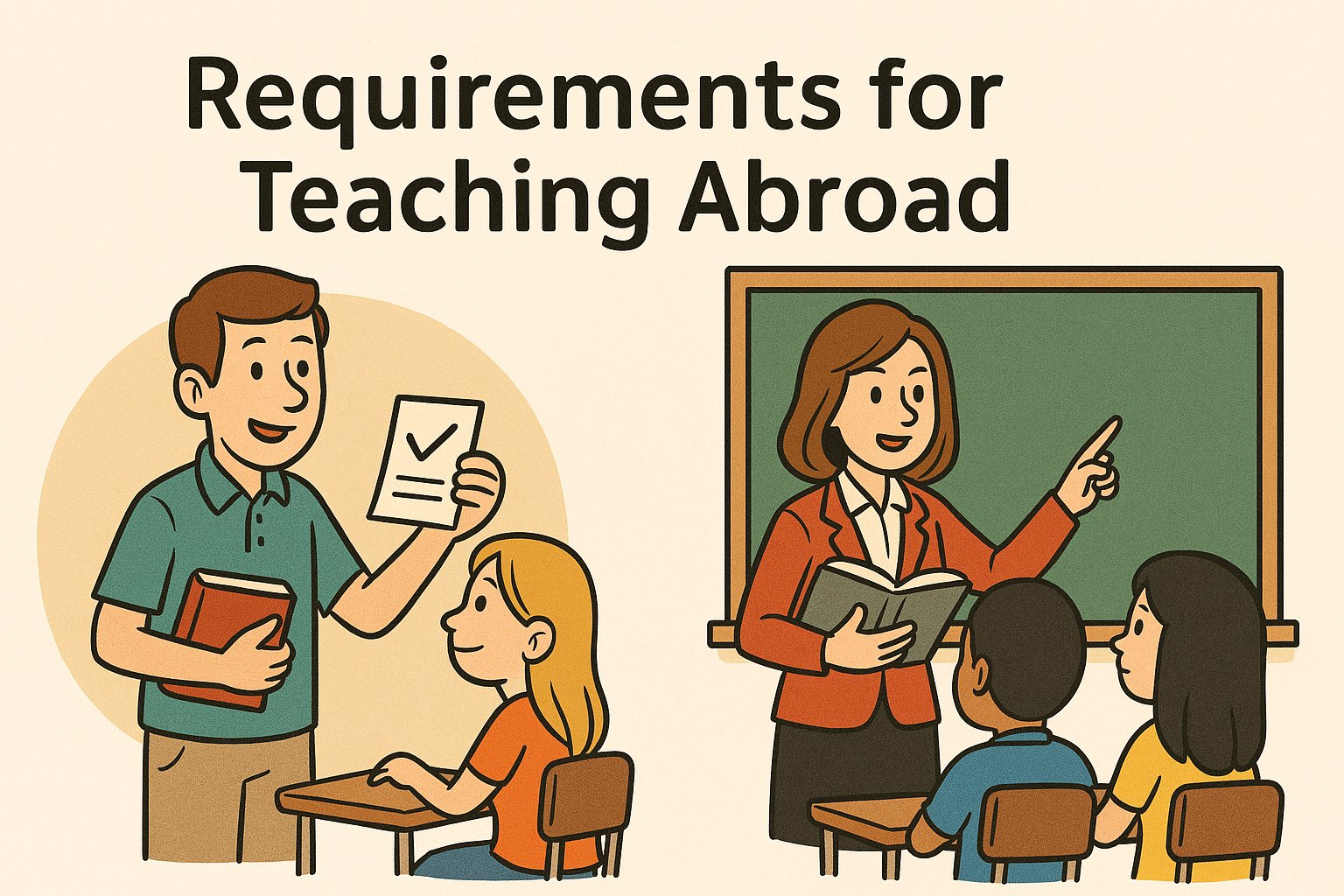
What do you need to teach abroad?
It depends on the job!
teacher01
Creado el: 2 abr 2025
Actualizado el: 3 abr 2025
There are certain jobs that are strict in their requirements -- whether it be in terms of certifications, diplomas or years of experience, while there are others that are very loosey goosey. Some positions are highly strict in their asks, will put the candidate through a rigorous vetting process, while others simply ask for spoken English and a certain "look".
My experience is that every age group except continuing education / adult learners has a range of types, so it's actually good to think about what age / grade level one prefers to teach than based off that determine what certifications are needed, if any.
For example if one wants to teach young children, private tutoring centers in China & South Korea can have the lowest pre-requisites. A passport from a western country, a bachelors degree in any field, and a teaching certificate1 might be literally the only requirements. Alternatively, International Private schools can be as strict as a traditional teaching job in the west -- requirements at the most prestigious academies can be an official teaching qualification from the home country, an education degree, and a minor or secondary degree in the topic of study (i.e., a math teacher would need a degree in math etc.,).
This range holds all the way up to university where some academic institutions require publications, research experience, advanced degrees and the expectation of actual research, while others simply ask for a bachelors, a teaching certificate, and some generic work experience.
I've seen this first hand -- meeting a high school teacher, who was fully qualified to teach back home and had decided to get a change of pace, teaching at an international school in a foreign land, or a doctorate who was originally teaching an American University and wanted his kids to learn Mandarin so moved the whole family. I've also met Eastern block foreigners who simply had tourist visas, broken English, and a willingness to pound the pavement and get numbers. These individuals were always at risk of being found out and deported and the school getting fined, but for the right school, they were willing to risk the fine and in some cases, had already prepaid to avoid the fine.
Wages are a different story and often times not connected to the quality of the school -- there might naively be an assumption that the more prestigious, academically ranked, etc., a school is, the better the pay or benefits, but that is not the case. For example, private tutoring academies can have reasonable hours and good pay or can have terrible hours (and by extension terrible pay). Similarly, high ranking universities might not pay well and provide little in terms of support (just a textbook, no TAs, large class sizes 50>), while others are the opposite -- the way universities are structured with partnerships and different colleges, these dramatic differences can actually show up in the same uni and sometimes even in the same building!
todo: add tags
todo: feels like this topic too expansive to really capture in an essay like this, wondering if i should break this down into multiple parts, as this comes across as both too long and yet not providing any real detail
Just like teaching jobs, there's a wide spectrum of teaching certificates -- a topic for another blog! But just to be clear, some of these certificates are fairly legitimate both in learning and qualifying boost, while others are just cash factories, but they can still count for the right job.